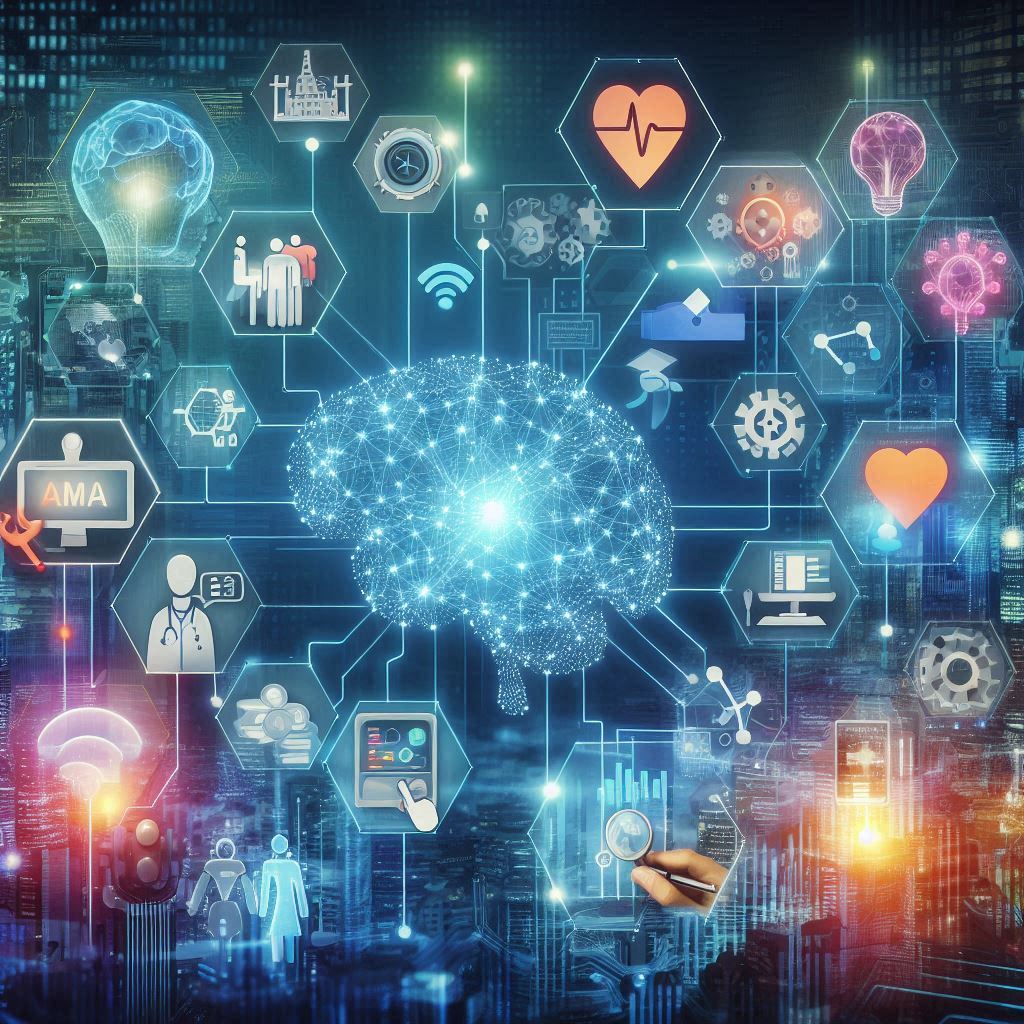AI in Action: Exploring Real-World Applications and Future Innovations

Artificial Intelligence (AI) is no longer a distant concept or a topic reserved for tech experts. It’s a transformative force actively reshaping industries, businesses, and daily life. In our last blog, we demystified AI, explaining what it is and how it works. Now, we will take a step further and explore how AI is making a tangible impact across various sectors and what exciting innovations the future holds.
AI in the Real World: Transforming Industries
Healthcare Revolution AI’s impact on healthcare is profound. From accelerating drug discovery to enhancing medical imaging, AI-driven solutions are revolutionizing diagnostics and treatments. For instance, AI systems can analyze X-rays, MRIs, and CT scans to detect diseases with accuracy often surpassing human doctors. Additionally, personalized medicine, powered by AI, allows doctors to create customized treatment plans based on a patient's unique genetic profile.
Example: IBM’s Watson Health AI is being used to sift through medical literature to provide treatment recommendations for cancer patients, helping doctors make more informed decisions.
Finance: Smarter Decision-Making In the finance world, AI helps financial institutions predict market trends, identify fraudulent transactions, and offer personalized financial advice. AI-powered chatbots handle customer inquiries, and predictive algorithms assist in investment strategies by analyzing vast amounts of data faster than human analysts.
Example: Many banks use AI to track fraudulent behavior by analyzing transaction patterns in real-time. AI’s ability to learn and adapt means it can detect unusual activity quicker than traditional methods.
AI in Retail: Enhancing Customer Experience Retailers are using AI to improve customer experiences in several ways, from personalized shopping recommendations to AI-powered chatbots handling customer service inquiries. Moreover, AI-driven inventory management systems optimize stock levels, reducing waste and ensuring popular products are always available.
Example: Amazon’s recommendation engine is one of the most well-known applications of AI in retail. Based on a user’s browsing history and purchase patterns, it suggests items that are highly likely to be of interest.
Manufacturing: AI-Powered Automation In manufacturing, AI-powered robots and systems are improving efficiency and accuracy in production lines. AI can predict when machines will fail, allowing companies to perform maintenance before costly breakdowns occur. This is known as predictive maintenance and is saving companies time and money.
Example: Siemens uses AI to monitor factory equipment and predict malfunctions before they happen, reducing downtime and improving operational efficiency.
Education: Personalized Learning AI is reshaping education by offering tailored learning experiences for students. Intelligent tutoring systems can adapt to individual students’ learning styles and pace, providing extra support where needed. AI also automates administrative tasks like grading and managing student records, freeing up educators to focus more on teaching.
Example: Duolingo, a popular language-learning platform, uses AI to customize lessons based on a user’s learning progress, offering personalized feedback and recommendations.
The Future of AI: Innovations on the Horizon
AI in Climate Change One of the most promising future applications of AI lies in tackling climate change. AI can optimize energy systems, reduce carbon emissions, and help predict natural disasters more accurately. AI-powered models can simulate climate scenarios and help governments and organizations make better decisions about energy use and environmental impact.
Future Vision: AI-driven smart grids could optimize electricity distribution, reducing energy waste and making better use of renewable energy sources like wind and solar power.
Human-AI Collaboration Rather than replacing humans, future AI systems are expected to work alongside us, augmenting our abilities. AI could become a powerful collaborator, helping scientists develop cures for diseases, assisting artists in creating new forms of digital art, or helping engineers design smarter, more efficient technologies.
Future Vision: Imagine working on a complex project with an AI assistant that can instantly provide relevant data, simulations, and solutions, enabling faster innovation.
Advancements in AI Ethics and Fairness As AI becomes more embedded in daily life, ensuring fairness, transparency, and accountability in AI systems is crucial. The future will likely see significant progress in developing ethical AI that reduces bias and ensures equal treatment. This will be particularly important in areas like hiring, law enforcement, and lending, where biased algorithms could have serious societal impacts.
Future Vision: Governments and companies will collaborate to create robust frameworks that ensure AI systems are transparent, fair, and just, empowering users to trust AI applications.
The Rise of Autonomous Systems From autonomous vehicles to delivery drones, AI will power the next generation of machines capable of navigating the world on their own. Self-driving cars and AI-driven logistics systems will revolutionize transportation and supply chains, making them safer, faster, and more efficient.
Future Vision: Self-driving cars become the norm, reducing traffic accidents, cutting down emissions, and giving people more free time as they no longer need to focus on driving.
The Road Ahead
Artificial Intelligence is evolving at an unprecedented pace. The opportunities AI presents are vast, but so are the challenges. As we continue to integrate AI into more aspects of life, we must remain mindful of the ethical considerations and strive to ensure that AI benefits society as a whole.
The future of AI is not just about automation but about augmenting human abilities, allowing us to tackle bigger challenges and unlock new levels of creativity and innovation. As we move forward, it's essential to stay informed, continue learning, and engage in discussions about how we can harness AI’s potential while mitigating its risks.
Stay tuned for more updates on how AI continues to shape our world, and how we can prepare for the exciting future ahead.
